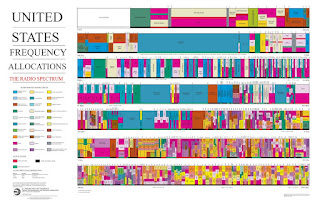The Free State Foundation's Fourteenth Annual Policy Conference – #FSFConf14 – took place on May 6 in Washington D.C. The conference's kickoff panel included current FCC Commissioners Brendan Carr and Nathan Simington, along with former FCC Commissioner Mignon Clyburn. Among the communications law and policy topics discussed by the panelists was the implementation massive broadband subsidy programs such as the Broadband Equity, Access, and Deployment Program ("BEAD Program").
During the panel, Commissioner Carr had much to say regarding interagency coordination and oversight of BEAD and other broadband subsidy programs:
We now have, for the first time that I am are of, significant federal resources and enough federal resources to actually eliminate the digital divide in this country. Now the hard part is over. The exceptionally difficult part is still to come, which is implementing those programs. And I remain very concerned that we do not have the right policy cuts and in place and the right coordination across agencies to effectively get those dollars into the ground connecting communities.
From my count, if you look across the agencies that have been given federal dollars over last 18 months, money that could be used for broadband and that is eligible for broadband infrastructure, by my count, its over $800 billion… If you assume the number [we need to end the digital divide in this country] is $80 billion, we've got ten times that amount of money that's already been appropriated or budgeted for the agencies. And I'm very concerned that we’re going to flash forward a couple of years, the $800 billion dollars is going to be gone and we’re still going to have a significant portion of the digital divide that we didn’t close.
Commissioner Carr related to the audience at #FSFConf14 that he sent letters to several federal agencies asking them how they are going to distribute funds, what maps they are going to use, and whether they are fully coordinated. He added that: "[h]alf never responded" and "[A]nswers that did come didn't give comfort.
Apart from the interagency coordination challenge, Commissioner Carr also offered his On the policy perspective in administering BEAD and other federal subsidy programs for broadband:
We have to prioritize the unserved. These are communities that have zero megabits per second over zero megabits per second. There are still too many of them in this country. And I understand the desire to get everybody to megabit speeds. I understand the desire to get multiple choices for your broadband dollars. But we have to elevate and prioritize those communities that are truly on wrong side of digital divide. … I don’t think we’re doing that across a lot of measures, in part because we’re defining lack of service as potentially places that have almost 80 over 20 and we’re treating them the same for a prioritization mechanism as zero over zero. That makes no sense, in my mind.
For more from Commissioner Carr as well as from Commissioner Nathan Simington and former Commissioner Mignon Clyburn, check out the video for #FSFConf14. Views expressed by Commissioner Clyburn during the panel regarding the broadband subsidy programs and agency sharing of information are quoted in a May 27 blog post.
Free State Foundation scholars also have weighed in on important implementation issues for BEAD and other broadband subsidy programs. See FSF Senior Fellow Andrew Long's May 24 Perspectives from FSF Scholars, "Future Guidance Can Fix NTIA’s Flawed 'Fiber-First' Approach" and my May 26 Perspectives, "NTIA's Broadband Subsidies Must Respect State Law Limits on Government-Owned Networks." Also, in a May 13 Media Advisory, I emphasized the importance of NTIA and the states prioritizing broadband deployment to truly unserved Americans and not subsidizing overbuilds or open access network management models that won't help connect anyone.
(*Note: The #FSFConf14 quotes contained in this blog are based on an unofficial, edited transcription made by the author of this blog. The edits were made for purposes of readability but none of the meaning was changed in doing so.)

















